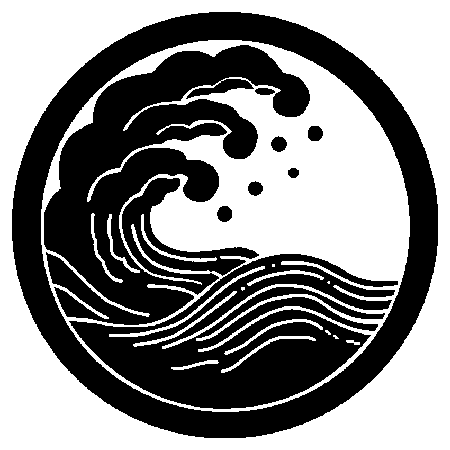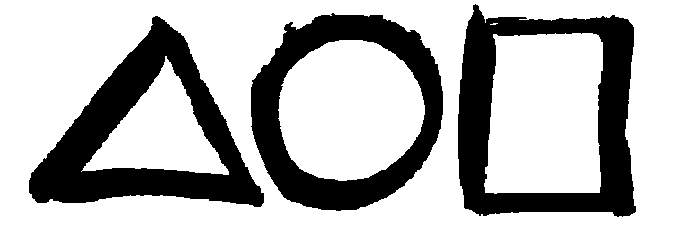How To Start Training
New students can start at any time. We encourage anyone interested in Aikido to come and watch a class. That is the best way to learn about training and what is expected of students at Juneau Aiki Dojo. After class we can spend time with you, answering any questions you have and showing you around the dojo.
We also hold introductory classes several times a year. The introductory classes meet once a week for about 4 weeks. This gives prospective students an opportunity to try out Aikido. Attending an introductory class is not required, but some folks are more comfortable starting with a group of other beginners.
All students are required to read and sign a liability waiver. Students who are not accustomed to vigorous physical activity, or who have medical conditions should consult with their doctor before starting training. New students will need to obtain a keiko gi, the traditional white training uniform. Juneau Aiki Dojo does not sell uniforms, but we can refer you to sources, either in Juneau or through the Internet. New students pay a full month's dues when starting. If they start after the first of the month we will pro-rate their dues for the second month.
Students must be 18 or older. The dojo does not have children's classes at the present time, although they may be offered in the future.
Students of Aikido from other dojos, and practitioners of other martial arts are welcome to pay a mat fee and train with us at any time.
Etiquette
Learning proper etiquette is an important part of learning a traditional martial art. Aikido has its roots in the martial arts of feudal Japan. That society was a polite society, a very practical accommodation given that the Samurai carried razor sharp swords with them wherever they went. As in all traditional Japanese arts, we bow frequently. Bows are not acts of subserviance, they are exchanges of respect between practitioners and instructors. On the mat the instructor is always called "Sensei," which just means teacher in Japanese.
One term you will hear often is "Onagaishimasu." It means please, and is used by both instructors and students. When the sensei says "Onagaishimasu," it usually means "Please do your best to do what I've shown you." When students say "Onagaishimasu," it means "Please teach me Aikido, and give me corrections so I can learn."
Obligations
Traditionally, martial arts instruction imposes significant obligations on students. We don't require blood oaths the way they did back in feudal Japan, but students do incur obligations, and should take them seriously.
Dues
Paying dues is one of the most important obligations of Aikido students. Dues should not be thought of as a fee for service. Rather, it is a contribution to the Aikido community, to insure that the dojo continues to exist and that students have a place to train. Dues are due on the first of the month. However, we realize that not all students will be at class on the first, so students are expected to pay their dues on the first day of the month that they train. Students should not take undue advantage of this leniency, if a student is not going to train for a couple of weeks the obligation to pay dues still exists and the student should arrange to make sure they are received.
Regular dues are $80 per month. Students paying regular dues can attend as many classes as they want.
If you are unable to pay your dues for any reason, it is a part of your obligation to discuss this with Sensei. We are reasonable people and want all students who are interested in training to have the opportunity. Talk to Sensei and in most cases something will be worked out. For example, if you have work obligations that would prevent you from coming to class more that two days a week, dues might be adjusted to $50 per month. Likewise, discounts for full-time students, families, and military can be discussed with Sensei.
The Dojo has no registration fees or annual affiliation fees, and sales tax is included.
Training Time
An important obligation for students is to train! Like most skills, your aikido will only improve if you practice. Students should try to attend at least two or three classes per week, and hopefully more. Students paying limited dues are encouraged to make their two classes per week. Time on the mat is the best way of making progress and avoiding frustration. This is not to say that Aikido students can never go on vacation, or miss classes due to other commitments. However, we expect students to make time for their Aikido classes. If you do have to miss classes for an extended period, due to vacation, illness, or other outside commitment, then you should let Sensei know. That way, we know what has happened to you and can anticipate your return to training.
Cleaning and Maintenance
Another important obligation for students is to participate in the cleaning and maintenance of the dojo. The concept of misogi, meaning purification, is an important one in Aikido. Having a clean place to train makes practice immensely more enjoyable for all. Assisting in the upkeep of the dojo also builds a feeling of inclusion in the Aikido community.
Sempai/Kohai Relationship
An integral concept in Japanese martial arts is the notion of senior students and junior students. The senior students, or Sempai, have the obligation to help bring along the more junior students. Sempai should be invested in the success of their juniors, or Kohai. Kohai have obligations of their own. The most important is to bring enthusiasm to their training. Most students would prefer to work out with someone of greater experience, in order to learn more, so when a Sempai works out with a Kohai, the least the Sempai should expect is enthusiastic effort from the junior student.
Style
The Aikido taught at Juneau Aiki Dojo is traditional Aikido, with a heavy emphasis on the relation of traditional Samurai sword and staff movements to empty hand techniques. This style of training is informally known as Iwama Style, after the name of the village where O-sensei spent the last years of his life and where Saito Sensei taught many foreigners who travelled to Japan to study Aikido.


